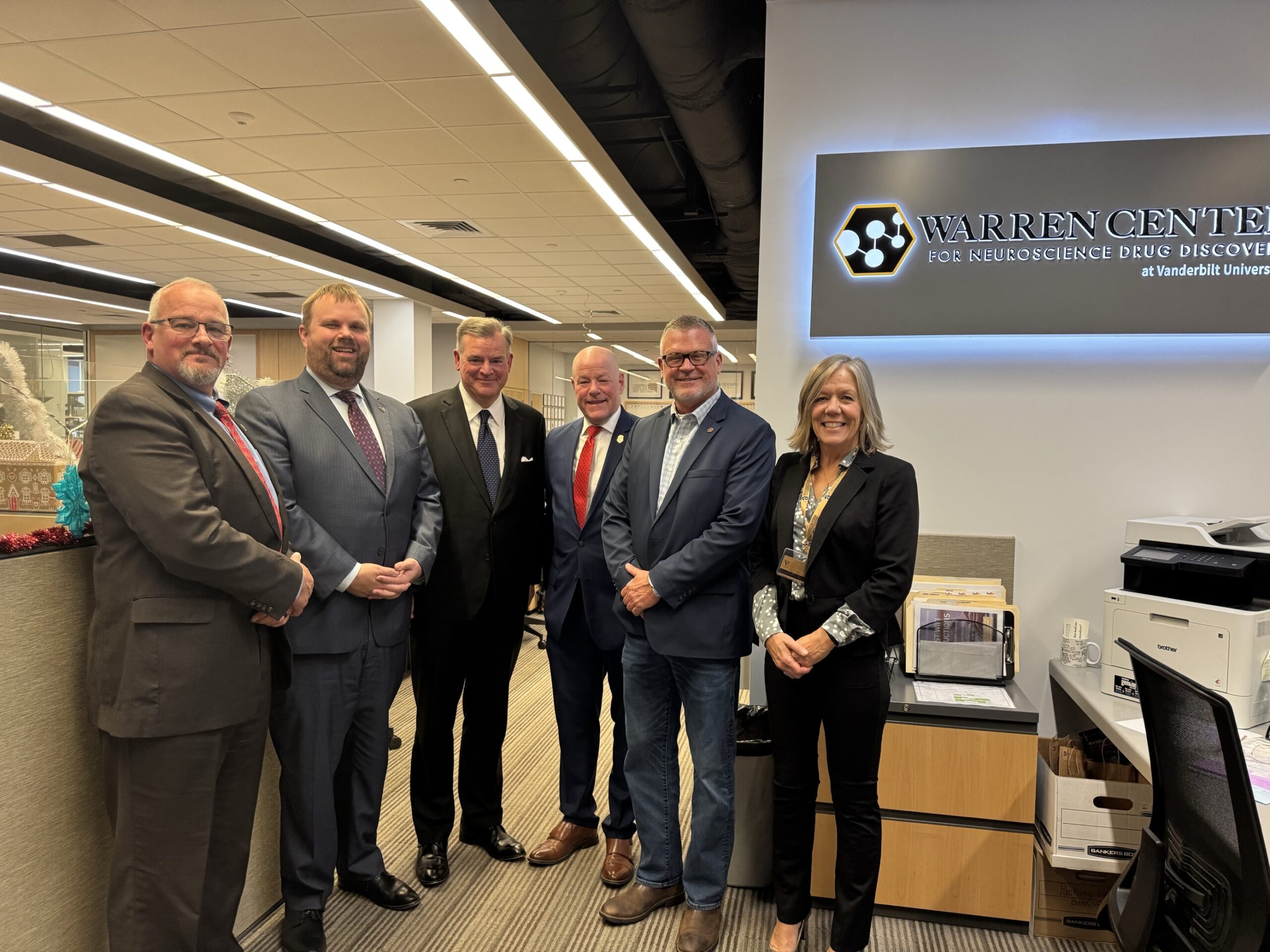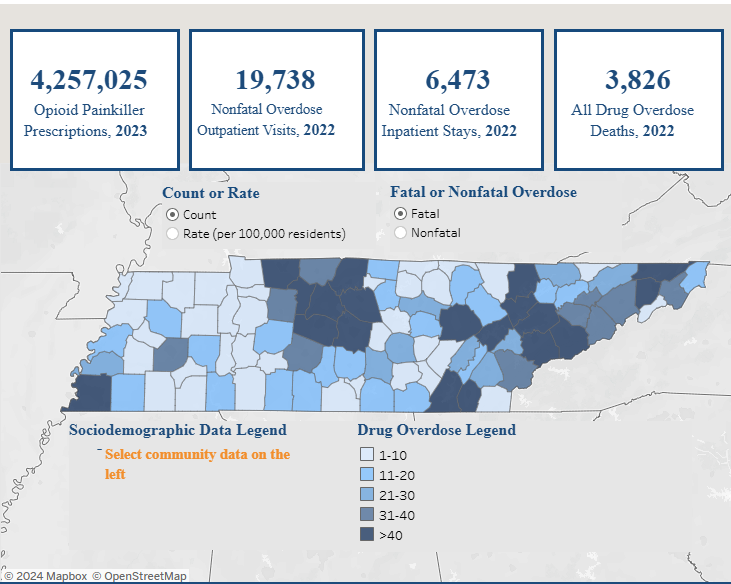Tennessee faces a persistent opioid epidemic, with an estimated 70,000 residents affected and the state ranking among the highest for prescription drug misuse. As the crisis evolves, researchers are increasingly turning to neuroscience to better understand the roots of addiction and develop safer, non-addictive pain treatments that could help prevent future overdose deaths.

In December, Tennessee Bureau of Investigation Director David Rausch and senior officials visited Vanderbilt’s Warren Center for Neuroscience Drug Discovery to learn more about how cutting-edge research is combatting the opioid crisis. Coordinated by Vanderbilt’s State Government Relations team, the meeting focused on how the center’s innovative work in drug discovery and addiction neuroscience could support the TBI’s efforts to reduce opioid misuse and improve public safety across the state. With opioid-related deaths continuing to rise statewide, the partnership underscores the importance of combining scientific research with law enforcement strategies to tackle the crisis.
Under Rausch’s leadership, the TBI has made combating opioid addiction and overdose deaths a top priority. The agency’s Drug Investigation Division works to disrupt illegal drug trafficking while supporting prevention and treatment efforts statewide. The Warren Center for Neuroscience Drug Discovery is uniquely positioned to contribute to these efforts. The center’s team of researchers focuses on developing safer, non-addictive treatments for pain and advancing the understanding of addiction’s neurobiological effects.
TBI officials learned about key projects, including work led by Kristen Gilliland, research assistant professor and director of outreach and advocacy programs at WCNDD, on the impacts of opioids and cannabis. Warren Center researchers emphasized the need for science-based public awareness campaigns to counter persistent misconceptions about substances like cannabis. They addressed common comparisons to alcohol and narratives downplaying its addictive potential, arguing that these misunderstandings are significant barriers to prevention. TBI officials also expressed interest in the center’s research on brain development, including neuron pruning, to illustrate the long-term effects of drug use on young brains.
TBI and Vanderbilt outlined steps to enhance their collaboration. TBI leaders will integrate Gilliland’s neuroscience education curriculum into statewide drug prevention programs, and Vanderbilt researchers will leverage their expertise to drive legislative conversations on public health.
“By bringing together the expertise of Vanderbilt researchers and the frontline experience of the TBI, we’re fostering a partnership that can lead to real, evidence-based solutions for Tennessee communities affected by the opioid crisis.” said Daniel Culbreath, assistant vice chancellor for state government relations.
This collaboration between Vanderbilt and the TBI highlights the critical role research universities play in addressing public health crises. By uniting addiction neuroscience with law enforcement’s operational insight, this partnership paves the way for a comprehensive approach to combat the opioid epidemic.
